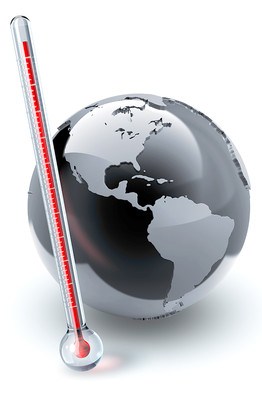The Climate Science Isn’t Settled
Posted: August 29, 2013 Filed under: Climate Change, Climate science, Global Warming, IPCC, Settled Science | Tags: Climate science, Global Warming, Greenhouse gas, Intergovernmental Panel on Climate Change, IPCC, Richard Lindzen Leave a comment“Historically, the claim of consensus has been the first refuge of scoundrels; it is a way to avoid debate by claiming that the matter is already settled. Whenever you hear the consensus of scientists agrees on something or other, reach for your wallet, because you’re being had.”
― Michael Crichton
•••

The Climate Science Isn’t Settled
Confident predictions of catastrophe are unwarranted.
By RICHARD S. LINDZEN
November 30, 2009, 7:44 p.m. ET
Is there a reason to be alarmed by the prospect of global warming? Consider that the measurement used, the globally averaged temperature anomaly (GATA), is always changing. Sometimes it goes up, sometimes down, and occasionally—such as for the last dozen years or so—it does little that can be discerned.
Claims that climate change is accelerating are bizarre. There is general support for the assertion that GATA has increased about 1.5 degrees Fahrenheit since the middle of the 19th century. The quality of the data is poor, though, and

because the changes are small, it is easy to nudge such data a few tenths of a degree in any direction. Several of the emails from the University of East Anglia’s Climate Research Unit (CRU) that have caused such a public ruckus dealt with how to do this so as to maximize apparent changes.
The general support for warming is based not so much on the quality of the data, but rather on the fact that there was a little ice age from about the 15th to the 19th century. Thus it is not surprising that temperatures should increase as we emerged from this episode. At the same time that we were emerging from the little ice age, the industrial era began, and this was accompanied by increasing emissions of greenhouse gases such as CO2, methane and nitrous oxide. CO2 is the most prominent of these, and it is again generally accepted that it has increased by about 30%.
The defining characteristic of a greenhouse gas is that it is relatively transparent to visible light from the sun but can absorb portions of thermal radiation. In general, the earth balances the incoming solar radiation by emitting thermal radiation, and the presence of greenhouse substances inhibits cooling by thermal radiation and leads to some warming.
There is general agreement on the above findings. At this point there is no basis for alarm regardless of whether any relation between the observed warming and the observed increase in minor greenhouse gases can be established. Nevertheless, the most publicized claims of the U.N.’s Intergovernmental Panel on Climate Change (IPCC) deal exactly with whether any relation can be discerned. The failure of the attempts to link the two over the past 20 years bespeaks the weakness of any case for concern.
The IPCC’s Scientific Assessments generally consist of about 1,000 pages of text. The Summary for Policymakers is 20 pages. It is, of course, impossible to accurately summarize the 1,000-page assessment in just 20 pages; at the very least, nuances and caveats have to be omitted. However, it has been my experience that even the summary is hardly ever looked at. Rather, the whole report tends to be characterized by a single iconic claim. Keep Reading »
The Climate Emails
The Economics of Climate Change
Rigging a Climate ‘Consensus’
Global Warming With the Lid Off
Climate Science and Candor


Recent Comments